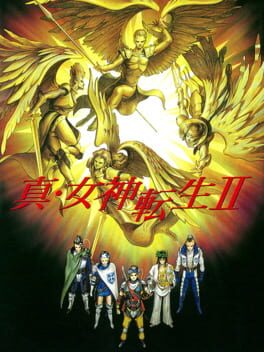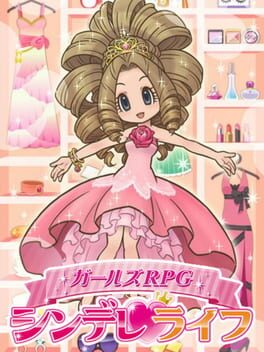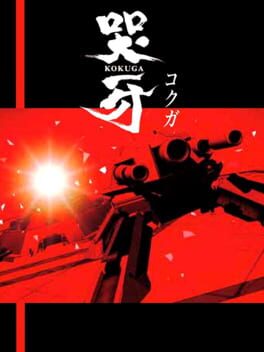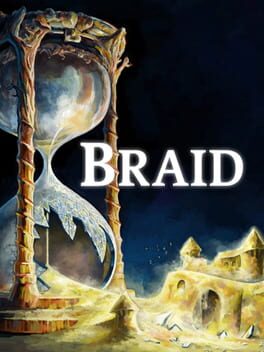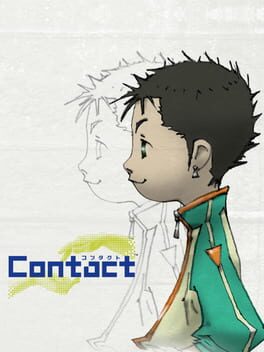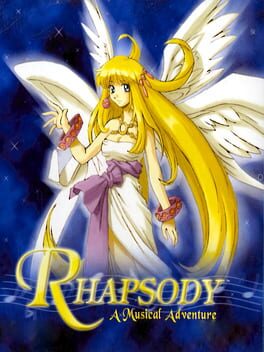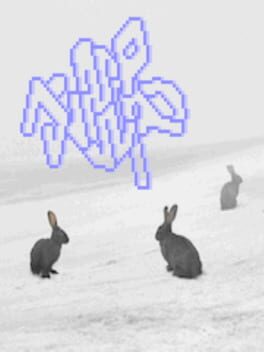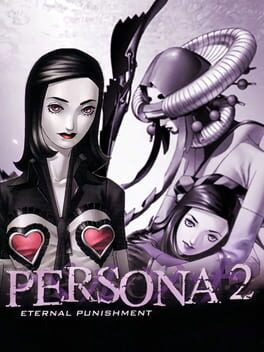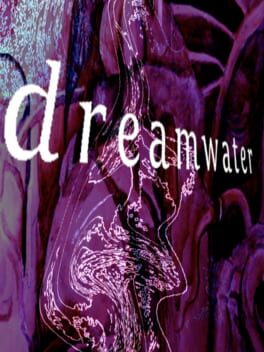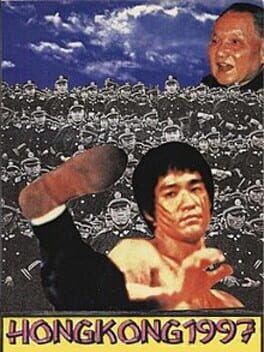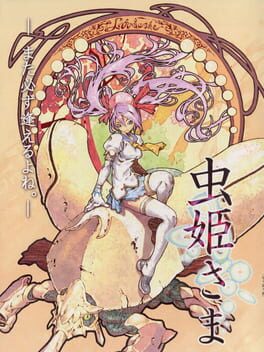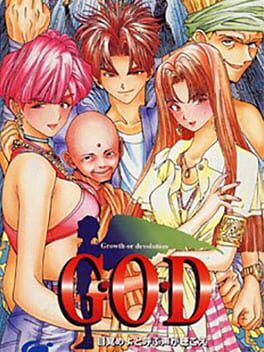rhinestonehawk
99 Reviews liked by rhinestonehawk
what a gorgeous feeling to explore in your sequel to a charming and comedic adventure game. Pamplemousse 2 is a confused title, from start to finish. a work four years removed from the original where every 3D clay figure is reused from it while every new element is a mess of 2D collages. it's all presented like an exploration of canonicity, using the previous game's two endings as a jumping-off point to clone Dominique at every choice they make. but it never really wants to answer that question, nor does it feel the need to further Dominique's (very fun) character or personality.
a lot of what made the first game charming remains here. even the off-key singing sounds better! what i love about it are the moments where every voice suddenly clicks and goes in tune before going out again, and that feeling is way more common in 2. but it also is used more deliberately. instead of breaking into song randomly, characters do it to either emphasize the comedy or burst out their more intense feelings.
and those feelings are so disjointed. this is a work personal enough for its creator to physically appear to confront the poor cloned protagonist. it doesn't even feel like a self-absorbed choice either, just another way to deliberate on a particular moment in the dev's life. Dominique didn't get a conclusive ending in their first adventure, nor will they get one here.
the feelings explored in each setpiece while the two Dominiques try to get a satisfying ending are very focused. they mostly deal with gender expectations, sex, art, choice, and regret. each gets its own (in)conclusive ending. in a way, it's way more laborious than the first game, even if this time it's a visual novel instead of an adventure game.
Pamplemousse 2 is ashamed of itself enough that starts with a very on-the-nose quiz about your expectations about it; if you had prior experience with Squinky's works, if you're a bigot, and so on. it's so remarkably insecure. i was at a similar place the last time i chose to make a game, and it's probably one of the worst places to be to create something personal. but i still wanted to make something. to do anything, even if it didn't amount to anything meaningful. a war with yourself where every part of you loses.
the songs this time around can be beautiful. especially the last few sung by Dominique... but they only get to be fun for a little while. the final song can only further the only message it can. it's sorry. it's thankful. it's still heartwarming, even though it feels like it can't be.
a lot of what made the first game charming remains here. even the off-key singing sounds better! what i love about it are the moments where every voice suddenly clicks and goes in tune before going out again, and that feeling is way more common in 2. but it also is used more deliberately. instead of breaking into song randomly, characters do it to either emphasize the comedy or burst out their more intense feelings.
and those feelings are so disjointed. this is a work personal enough for its creator to physically appear to confront the poor cloned protagonist. it doesn't even feel like a self-absorbed choice either, just another way to deliberate on a particular moment in the dev's life. Dominique didn't get a conclusive ending in their first adventure, nor will they get one here.
the feelings explored in each setpiece while the two Dominiques try to get a satisfying ending are very focused. they mostly deal with gender expectations, sex, art, choice, and regret. each gets its own (in)conclusive ending. in a way, it's way more laborious than the first game, even if this time it's a visual novel instead of an adventure game.
Pamplemousse 2 is ashamed of itself enough that starts with a very on-the-nose quiz about your expectations about it; if you had prior experience with Squinky's works, if you're a bigot, and so on. it's so remarkably insecure. i was at a similar place the last time i chose to make a game, and it's probably one of the worst places to be to create something personal. but i still wanted to make something. to do anything, even if it didn't amount to anything meaningful. a war with yourself where every part of you loses.
the songs this time around can be beautiful. especially the last few sung by Dominique... but they only get to be fun for a little while. the final song can only further the only message it can. it's sorry. it's thankful. it's still heartwarming, even though it feels like it can't be.
SMT2 is atypical from most JRPGs in more ways than you would expect. Eschewing a traditional adventure with towns along the way is nothing necessarily new, but the way SMT2 focuses on such a sprawling but interconnected region feels pretty forward thinking. There's obvious inspiration from Western RPGs, but it also evokes Dark Souls or FF12 with its commitment to an immersive world.
There's no doubt that the world itself is incredibly interesting and creative in a lot of ways, much more so than SMT1. From the unique flavor text to the striking aesthetics of each area, Kaneko's creativity really bleeds through constantly. It makes for probably the best aspect of the exploration.
However the exploration itself often ends up as a tedious and extremely frustrating task. I mentioned Dark Souls as an example of an immersive world that SMT2 reminds me of, but Dark Souls both commits to making you move from place to place on foot and has interesting gameplay. SMT2's gameplay is, well, terrible. It's pretty much brainless levels of easy for most of the game but with a ridiculous amount of encounters. I sort of knew this would be the case going in, but even if I was able to get past the combat itself the overall design feels made to waste time to insane degrees. Most of the games runtime is made up of fetch quests which drag you around every corner of the map. I understand wanting you to explore the map, but so much of the game being inane backtracking for little gameplay or story reward gets extremely frustrating.
Unfortunately, this detracts a lot from the story a lot of the time for me as well. This is by far the aspect of the game I've seen praised the most, and I think there is good reason for this. Not only does it have a much more interesting setting than SMT1, it also has a much more interesting alignment system that feels less wishy-washy about what it's trying to say. But the structure hurts it greatly still, as the story is only interesting until it suddenly isn't again. For every long expository dialogue scene there's another 10 hours of wandering around doing random tasks afterwards with little story impact. Aleph is a cool idea for a protagonist, with a really neat twist, but it's also undermined by the fact that there's little to no interactions that build up to the twist or follow up on it. For every interesting plot point I know it will be followed by "Find the 8 Idols of shitfuck to unlock the gate" I got the Law ending and it was interesting and neat but also felt detached from the rest of the game as well, mostly functioning off a cool aesthetic. I think the story had a big chance to make up for the rest of the game for me but I came away from it with little attachment.
I might be giving SMT2 a more positive score than how it actually felt to play but I can see the appeal to such a unique game. There's a really striking creative voice behind a lot of it that even SMT1 didn't really have. I just wish it could have all come together for me to be able to see it as a masterpiece at all.
There's no doubt that the world itself is incredibly interesting and creative in a lot of ways, much more so than SMT1. From the unique flavor text to the striking aesthetics of each area, Kaneko's creativity really bleeds through constantly. It makes for probably the best aspect of the exploration.
However the exploration itself often ends up as a tedious and extremely frustrating task. I mentioned Dark Souls as an example of an immersive world that SMT2 reminds me of, but Dark Souls both commits to making you move from place to place on foot and has interesting gameplay. SMT2's gameplay is, well, terrible. It's pretty much brainless levels of easy for most of the game but with a ridiculous amount of encounters. I sort of knew this would be the case going in, but even if I was able to get past the combat itself the overall design feels made to waste time to insane degrees. Most of the games runtime is made up of fetch quests which drag you around every corner of the map. I understand wanting you to explore the map, but so much of the game being inane backtracking for little gameplay or story reward gets extremely frustrating.
Unfortunately, this detracts a lot from the story a lot of the time for me as well. This is by far the aspect of the game I've seen praised the most, and I think there is good reason for this. Not only does it have a much more interesting setting than SMT1, it also has a much more interesting alignment system that feels less wishy-washy about what it's trying to say. But the structure hurts it greatly still, as the story is only interesting until it suddenly isn't again. For every long expository dialogue scene there's another 10 hours of wandering around doing random tasks afterwards with little story impact. Aleph is a cool idea for a protagonist, with a really neat twist, but it's also undermined by the fact that there's little to no interactions that build up to the twist or follow up on it. For every interesting plot point I know it will be followed by "Find the 8 Idols of shitfuck to unlock the gate" I got the Law ending and it was interesting and neat but also felt detached from the rest of the game as well, mostly functioning off a cool aesthetic. I think the story had a big chance to make up for the rest of the game for me but I came away from it with little attachment.
I might be giving SMT2 a more positive score than how it actually felt to play but I can see the appeal to such a unique game. There's a really striking creative voice behind a lot of it that even SMT1 didn't really have. I just wish it could have all come together for me to be able to see it as a masterpiece at all.
Kokuga
2013
Braid
2008
Contact
2006
Functionally, this is a failure of a video game; all the ways a player interfaces with the game are either sloppily opaque, mind-numbingly dull, or both. Mandatory character interactions are frequently tucked away in completely innocuous NPC dialogue, with no indication that any new part of the game has become accessible after talking with them. Combat encounters borrow the positional grid-based systems of LIVE A LIVE or Popolocrois Monogatari, yet any instances of this feature affecting battle strategies are both exceedingly rare and exceedingly shallow. It understands that Pokémon is the hot new exciting game everyone wants to be, but it doesn’t realize we’re well past the inconsequential random monster recruitment of Dragon Quest V. Every dungeon in the game is built using exactly two visual backdrops that get lazily color-swapped with no other visual or thematic variations, and the dungeon designs are never any deeper than a single intended progression path with frivolous branching dead-ends. Strikingly few sections of this game can be intuitively navigated without the guiding hand of a walkthrough. None of the issues in this game ever amount to any kind of mechanical payoff or purpose; the game is simply not constructed well. Though with all this being the case, anybody who critically engages with art has to reconcile with one question sooner or later: at what point does heart surmount technical ineptitude?
The truth is that despite all its damning flaws, I came away from Rhapsody: A Musical Adventure absolutely enamored with it. This game ascends far beyond the threshold where passion overtakes convention, proving that even a blatantly terrible video game can still claw its way into being a masterpiece when it’s so overflowing with love. The sporadic musical numbers sung by noticeably non-professional singers constantly put a huge smile on my face – and not an ironic, sneering smile either, a genuine one! The earnestness of untrained singing voices lent the songs a sincerity that only further drew out the beauty of the music. Similarly, the simplicity and innocence of Rhapsody’s narrative is exactly what allows it to be so effective. The central themes of the story are a little loose and tend to get confused with each other, but there were still several story beats that managed to pool emotions in my eyes – when other story beats didn’t have me audibly laughing out loud, of course. This game’s got a magical tone that knows exactly what it wants to be exactly when it wants to be them, and it pulls them off excellently. Wrap it all up with some of the softest, cutest, warmest character designs and environments the Playstation can render and the result is a game that begs to be loved with just as much love as it has to give… And I do! I love this game. How could I not?
Rhapsody: A Musical Adventure is constructed horribly but crafted magnificently, and in the end that heart is what matters most above anything else. How beautiful for a game like this to exist.
The truth is that despite all its damning flaws, I came away from Rhapsody: A Musical Adventure absolutely enamored with it. This game ascends far beyond the threshold where passion overtakes convention, proving that even a blatantly terrible video game can still claw its way into being a masterpiece when it’s so overflowing with love. The sporadic musical numbers sung by noticeably non-professional singers constantly put a huge smile on my face – and not an ironic, sneering smile either, a genuine one! The earnestness of untrained singing voices lent the songs a sincerity that only further drew out the beauty of the music. Similarly, the simplicity and innocence of Rhapsody’s narrative is exactly what allows it to be so effective. The central themes of the story are a little loose and tend to get confused with each other, but there were still several story beats that managed to pool emotions in my eyes – when other story beats didn’t have me audibly laughing out loud, of course. This game’s got a magical tone that knows exactly what it wants to be exactly when it wants to be them, and it pulls them off excellently. Wrap it all up with some of the softest, cutest, warmest character designs and environments the Playstation can render and the result is a game that begs to be loved with just as much love as it has to give… And I do! I love this game. How could I not?
Rhapsody: A Musical Adventure is constructed horribly but crafted magnificently, and in the end that heart is what matters most above anything else. How beautiful for a game like this to exist.
Jumpwad
2022
Dreamwater
2023
Hong Kong 97
1995
As a game it's awful, but it clearly is on purpose.
This is a hilarious piece of political satire, where Bruce Lee's relative CHIN wipes out mainland China's entire population... oh but China's secret weapon is coming to stop him: a revived Deng Xioping (he was alive when this game was made lmao).
This game is so offensive, it's like the grandfather of the many offensive newgrounds flash games.
Play it, just to experience the madness. Be careful though, you may get 我愛北京天安門, 天安門上太陽升 stuck on your head.
This is a hilarious piece of political satire, where Bruce Lee's relative CHIN wipes out mainland China's entire population... oh but China's secret weapon is coming to stop him: a revived Deng Xioping (he was alive when this game was made lmao).
This game is so offensive, it's like the grandfather of the many offensive newgrounds flash games.
Play it, just to experience the madness. Be careful though, you may get 我愛北京天安門, 天安門上太陽升 stuck on your head.
Mushihimesama
2004
There is a moment in Mushihimesama where I started to feel guilty. Not for the act of playing the game or anything but upon hearing Reco the game's protagonist death scream a bit too frequently as I weave her into yet another purple ball of bug plasma. This really struck home though when I paused the game and the music and sound effects stopped but her scream continued, echoing into the void reminding me of my failure.
In case it's not apparent I'm still pretty green to shoot 'em ups though I've been investing time playing them more and more since joining backloggd. I see people here discussing in their reviews completing a 'one CC' run and I laugh at the the very idea of the practice it would take me to do such a thing. You see I normally play a shoot 'em up once, see the credits, take time to think about what I played, what did I like? what didn't I? and then move on. There is something about Mushihimesama though that keeps drawing me to play it again and again. For the first time I feel I almost understand hardcore STG players, at least a little bit.
The immediate thing I need to talk about with the actual game though is the cover art here. It's the thing that made me aware of this games existence. A friend here started playing it before I started delving more into the genre a couple of years ago and my first thought was "what on earth is that?" You only make first impressions once and it's absolutely sublime. Taking a mixture of anime and art nouveau with the curved backdrop, colours and flowing hair. It's like if Alphonse Mucha had become an anime artist and I utterly adore it. The art is one of the stand out elements of this title for both aesthetics and design. Taking influence from studio Ghibli's animated classic Nausica Valley of the Wind, you play the afore mentioned Princess Reco. She is due to be sacrificed to stop the Miasma that threatens her village from the giant Koju insects. On her 15th birthday she takes flight on her Rhinoceros beetle to stop them. The game's theme is entirely about insects bugs and nature, even the game's title Mushihimesama translates roughly to bug princess.
It spans five stages and I love the visuals and details. Lush looking forests, petrified centipede husks with fauna growing out of them, lava stages, crane flies floating on water and not to mention the way the stages are so active in the backgrounds. On one stage you can see this ginormous beetle fortress traveling under the canopy whilst you fight smaller enemies above before appearing as the boss. Another level with a giant beetle attached to a chasm wall that flies up to engage you. It's just a really cool looking title for concept art and in game visuals. Where it's clever though is in it's usage of art and colour in this design. This game is extremely vibrant with hues of green, red, blue, yellow all over but they reserve purple very specifically for enemy fire. Bright purple. Such a small thing but mechanically makes it very easy to understand what it a threat to you and is also very visually striking at the same time. I've played games where I simply couldn't see what was coming at me due to colour blends between backgrounds and fire. This eliminates that issue entirely, just because something is clear though, doesn't mean it is easy to avoid, this is a bullet hell after all.
This is my first real one in fact and I understand a good one for that because it's actually incredibly simple in a lot of ways through how it's been designed as mentioned above. You get one character Reco, but have three firing modes to choose from in how her bullets fire. She gets some basic power ups for her main gun and satellites which can be used either in a spread pattern or more focused fire. Seed bombs can briefly clear the screen of bullets to save you when firing and everything else is positioning and prioritising targets. There isn't a lot to learn at the base level but there is a lot to master. Knowing where to be on a level, taking out a bigger Koju first to control the flow and watching the onscreen bullets fade out or dodging through an absolute torrent of fire and coming out the other side is an absolute rush when it happens. I actually prefer playing it on Manic over normal difficulty despite the increase in bullet density coming my way because the game just feels good to play moment to moment but I am still learning a lot every time I play.
Though I am reviewing the arcade game here I played through once I would recommend getting the Mushihimesama HD release on steam for it's crisper visuals and extras I'll review separately another time. Regardless of version though I'm really glad this actually lived up to both the word of mouth around it and my expectations based on the art, fun music and footage I've seen. This is actually my first Cave game having weirdly played some games that eventually led to their formation prior. It's probably not my favourite shoot 'em up but I must say it's an extremely good one and I look forward to playing more of Cave's works.
Reco's death scream however will continue to haunt me for some time but I am getting better to prevent her suffering.
+ Concept art is gorgeous.
+ In game visuals and art are also gorgeous.
+ Simple clear design but still a challenge.
In case it's not apparent I'm still pretty green to shoot 'em ups though I've been investing time playing them more and more since joining backloggd. I see people here discussing in their reviews completing a 'one CC' run and I laugh at the the very idea of the practice it would take me to do such a thing. You see I normally play a shoot 'em up once, see the credits, take time to think about what I played, what did I like? what didn't I? and then move on. There is something about Mushihimesama though that keeps drawing me to play it again and again. For the first time I feel I almost understand hardcore STG players, at least a little bit.
The immediate thing I need to talk about with the actual game though is the cover art here. It's the thing that made me aware of this games existence. A friend here started playing it before I started delving more into the genre a couple of years ago and my first thought was "what on earth is that?" You only make first impressions once and it's absolutely sublime. Taking a mixture of anime and art nouveau with the curved backdrop, colours and flowing hair. It's like if Alphonse Mucha had become an anime artist and I utterly adore it. The art is one of the stand out elements of this title for both aesthetics and design. Taking influence from studio Ghibli's animated classic Nausica Valley of the Wind, you play the afore mentioned Princess Reco. She is due to be sacrificed to stop the Miasma that threatens her village from the giant Koju insects. On her 15th birthday she takes flight on her Rhinoceros beetle to stop them. The game's theme is entirely about insects bugs and nature, even the game's title Mushihimesama translates roughly to bug princess.
It spans five stages and I love the visuals and details. Lush looking forests, petrified centipede husks with fauna growing out of them, lava stages, crane flies floating on water and not to mention the way the stages are so active in the backgrounds. On one stage you can see this ginormous beetle fortress traveling under the canopy whilst you fight smaller enemies above before appearing as the boss. Another level with a giant beetle attached to a chasm wall that flies up to engage you. It's just a really cool looking title for concept art and in game visuals. Where it's clever though is in it's usage of art and colour in this design. This game is extremely vibrant with hues of green, red, blue, yellow all over but they reserve purple very specifically for enemy fire. Bright purple. Such a small thing but mechanically makes it very easy to understand what it a threat to you and is also very visually striking at the same time. I've played games where I simply couldn't see what was coming at me due to colour blends between backgrounds and fire. This eliminates that issue entirely, just because something is clear though, doesn't mean it is easy to avoid, this is a bullet hell after all.
This is my first real one in fact and I understand a good one for that because it's actually incredibly simple in a lot of ways through how it's been designed as mentioned above. You get one character Reco, but have three firing modes to choose from in how her bullets fire. She gets some basic power ups for her main gun and satellites which can be used either in a spread pattern or more focused fire. Seed bombs can briefly clear the screen of bullets to save you when firing and everything else is positioning and prioritising targets. There isn't a lot to learn at the base level but there is a lot to master. Knowing where to be on a level, taking out a bigger Koju first to control the flow and watching the onscreen bullets fade out or dodging through an absolute torrent of fire and coming out the other side is an absolute rush when it happens. I actually prefer playing it on Manic over normal difficulty despite the increase in bullet density coming my way because the game just feels good to play moment to moment but I am still learning a lot every time I play.
Though I am reviewing the arcade game here I played through once I would recommend getting the Mushihimesama HD release on steam for it's crisper visuals and extras I'll review separately another time. Regardless of version though I'm really glad this actually lived up to both the word of mouth around it and my expectations based on the art, fun music and footage I've seen. This is actually my first Cave game having weirdly played some games that eventually led to their formation prior. It's probably not my favourite shoot 'em up but I must say it's an extremely good one and I look forward to playing more of Cave's works.
Reco's death scream however will continue to haunt me for some time but I am getting better to prevent her suffering.
+ Concept art is gorgeous.
+ In game visuals and art are also gorgeous.
+ Simple clear design but still a challenge.
A globe-trotting adventure set in modern times featuring a nondescript boy, a blonde guy with guns, a pink girl (x2), and a martial artist monk, all of whom boast psychic abilities and team up to defend Earth from invading aliens… Released only two years after MOTHER 2 (and just a few months after it came West as EarthBound), this is surely the first MOTHER fangame in history. Though where EarthBound leans absurdist, G.O.D. examines the consequences of that absurdity hyper-literally. The alien invasion witnessed at the top of a hometown mountain is not a mystical start to a fairytale, but a grizzly armageddon that immediately wipes out the significant majority of human civilization. Aliens with goofy, surreal designs approximating real-world creatures are met with justified confusion and terror. Firearm-bearing militiamen attempt to take back the world from these invading forces through a decade of war – a fight they’re nearly on the brink of losing. Even something as unassuming as staying at a typically RPG-styled inn has a mature, lasting ramification on the narrative. That’s not to say it handles all of this particularly well (unfortunately, the aforementioned globe-trotting nature of this adventure leads to repulsively frequent cultural stereotypes and racism), but to see G.O.D. actually applying these ideas of “What if EarthBound was like, realistic, dude,” before a South Park-loving American preteen could even get their hands on a cartridge at all is historically fascinating. MOTHER fangames – or even just indie games in general – have grown similar thesis statements, and yet I’d struggle to say many are as successful as this was (barring the racism, of course… if that even needs to be said). Hell, G.O.D. even beat Yoko Taro to some of his most famous narrative punches by 15 years – note for note, the exact twists that NieR would go on to accrue so many accolades for can be found in almost identical form here. To play G.O.D. is to see a shockingly forward-thinking condensation of borrowed ideas that would unknowingly predict the cultural zeitgeist decades into the future with crystalline accuracy. I just wish it, uh, wasn’t so racist!!
P.S. ~ Batty is the funniest character in any MOTHER-inspired video game
P.S. ~ Batty is the funniest character in any MOTHER-inspired video game


